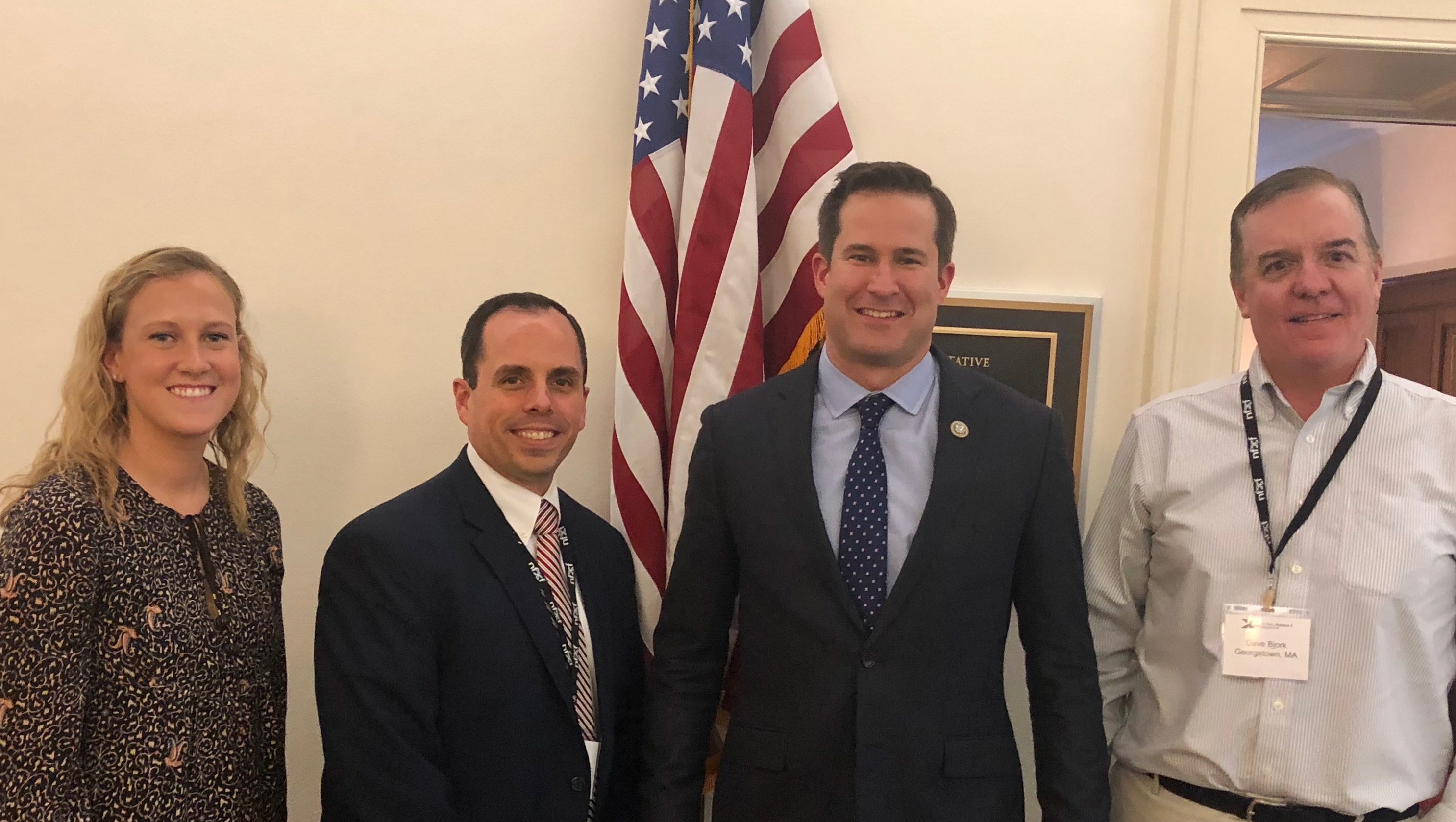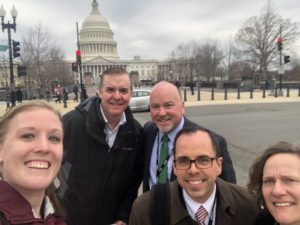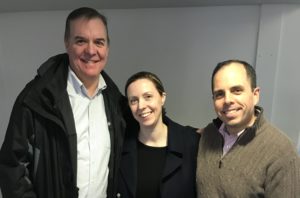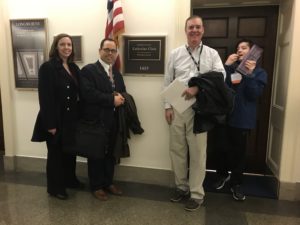
In the first week of March I attended my first Fragile X Advocacy Day, organized by the NFXF, to meet with many of the Massachusetts delegation to Congress, and I wanted to give my takeaways from the experience. While this was my first time advocating for Fragile X research, I’ve been a longtime lung cancer research advocate and have met with many of the same representatives in the past. Advocacy Day was well organized and we had an awesome team of advocates representing Massachusetts (including Mike Pierce, Ed Hanrahan, Denise Devine, Kelly Devine, Melissa Welin, her son Caleb and niece Kathryn).
It was a pleasure to meet with many of the families that were in attendance and to meet the leadership of NFXF. My participation in Advocacy Day was in the spirit of “we are all in this together”. Here are my takeaways.
Government funding of Fragile X research complements the research FRAXA is investing in.
FRAXA’s mission is to find effective treatments and ultimately a cure for Fragile X. With support from our generous donors, FRAXA has invested over $1 million a year to research – over $26 million to date. Current research spans many areas, from repurposing existing FDA-approved medications, to clinical trials, to gene reactivation approaches using CRISPR. In addition, FRAXA is opening new avenues and bringing more financial resources into Fragile X research by working with over 30 pharmaceutical companies who are developing drugs and technologies to treat Fragile X. Our Medical Director, Dr. Mike Tranfaglia, has also helped advise the National Institutes of Health (NIH) on directions the field should pursue over the next 5-10 years to make the most possible progress toward treating Fragile X and FMR1-related conditions. Dr. Tranfaglia has helped identify the most critical existing gaps in basic, translational, and clinical research which need to be filled to find effective treatments and ultimately a cure for Fragile X. It’s also important to note that NIH no longer funds clinical trials.
As the new guy on the block, I welcome everyone to take a look at what FRAXA is doing.
If you want to support Fragile X research, and you are not already a supporter of FRAXA, I hope you will consider making a donation. If you are already a donor, thank you for being a friend of FRAXA! If you’re reading this and you’re not in the FRAXA database, then you’re not getting the benefit of our regular research updates and you’re not getting the benefit of the HOPE to be gained by knowing that there’s A LOT MORE going on in FX research than you can read about in the few and far between reports from the big studies funded by NIH.
And right now, there is a whole host of exciting research that FRAXA is funding. Awarding funding to research and being good stewards of our donors’ contributions is a serious process. I can tell you that FRAXA has strong governance (Board of Directors) and a distinguished Board of Scientific Advisors that help guide decisions on awarding Fragile X grants. We fund about 20 projects each year, tackling a variety of strategies. We accept proposals from researchers and then we vet them through our scientific review process to determine which ones get funded. I look at it like an investment portfolio: we have a diversified number of scientists working on effective treatments and a cure. In my experience in cancer research, this approach is effective because we don’t know which scientist or laboratory will come up with the next big breakthrough. For example, we have two projects working on gene reactivation, one at Harvard University and one at the University of Michigan, and we have funded many clinical trials, including Dr. Craig Erickson’s Phase 2 trial of AZD7325 in adults with Fragile X syndrome at Cincinnati Children’s Hospital.
FRAXA is doing great work, and we appreciate the generous support of our many donors. If I haven’t met you yet, I hope we will meet in the near future. In the meantime, the best way for you to know about all of these exciting developments is to sign up for our email newsletter and follow us on Facebook. We are putting out information and stories about our research and the Fragile X community on a regular basis.



